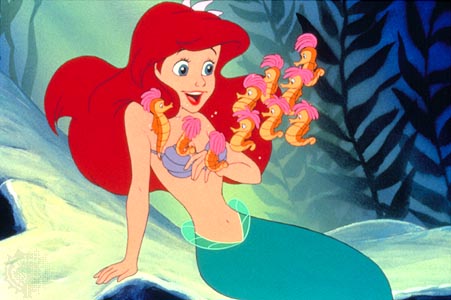
Recursos educativos en inglés. Textos en inglés, idóneos para dictados y traducciones. Ideal para aprender inglés, practicar vocabulario, pronunciación y mucho más, de una manera divertida.
The Fox and the Lion
When first the Fox saw the Lion he was terribly frightened, and ran away and hid himself in the wood. Next time however he came near the King of Beasts he stopped at a safe distance and watched him pass by. The third time they came near one another the Fox went straight up to the Lion and passed the time of day with him, asking him how his family were, and when he should have the pleasure of seeing him again; then turning his tail, he parted from the Lion without much ceremony.
Familiarity breeds contempt.
The Lion and the Statue
A Man and a Lion were discussing the relative strength of men and lions in general. The Man contended that he and his fellows were stronger than lions by reason of their greater intelligence. ‘Come now with me,’ he cried, ‘and I will soon prove that I am right.’ So he took him into the public gardens and showed him a statue of Hercules overcoming the Lion and tearing his mouth in two.‘That is all very well,’ said the Lion, ‘but proves nothing, for it was a man who made the statue.’ We can easily represent things as we wish them to be.
The Ant and the Grasshopper
In a field one summer’s day a Grasshopper was hopping about, chirping and singing to its heart’s content. An Ant passed by, bearing along with great toil an ear of corn he was taking to the nest.
‘Why not come and chat with me,’ said the Grasshopper, ‘instead of toiling and moiling in that way?’
‘I am helping to lay up food for the winter,’ said the Ant, ‘and recommend you to do the same.’
‘Why bother about winter?’ said the Grasshopper; we have got plenty of food at present.’ But the Ant went on its way and continued its toil. When the winter came the Grasshopper had no food and found itself dying of hunger, while it saw the ants distributing every day corn and grain from the stores they had collected in the summer. Then the Grasshopper knew:
It is best to prepare for the days of necessity.
The Tree and the Reed
‘Well, little one,’ said a Tree to a Reed that was growing at its foot, ‘why do you not plant your feet deeply in the ground, and raise your head boldly in the air as I do?’
‘I am contented with my lot,’ said the Reed. ‘I may not be so grand, but I think I am safer.’

‘Safe!’ sneered the Tree. ‘Who shall pluck me up by the roots or bow my head to the ground?’ But it soon had to repent of its boasting, for a hurricane arose which tore it up from its roots, and cast it a useless log on the ground, while the little Reed, bending to the force of the wind, soon stood upright again when the storm had passed over.
Obscurity often brings safety.
The Fox & the Cat
A Fox was boasting to a Cat of its clever devices for escaping its enemies. ‘I have a whole bag of tricks,’ he said, ‘which contains a hundred ways of escaping my enemies.’
‘I have only one,’ said the Cat; ‘but I can generally manage with that.’ Just at that moment they heard the cry of a pack of hounds coming towards them, and the Cat immediately scampered up a tree and hid herself in the boughs. ‘This is my plan,’ said the Cat. ‘What are you going to do?’ The Fox thought first of one way, then of another, and while he was debating the hounds came nearer and nearer, and at last the Fox in his confusion was caught up by the hounds and soon killed by the huntsmen.
Miss Puss, who had been looking on, said:
‘Better one safe way than a hundred on which you cannot reckon.’
The Wolf in Sheep’s Clothing
A Wolf found great difficulty in getting at the sheep owing to the vigilance of the shepherd and his dogs. But one day it found the skin of a sheep that had been flayed
and thrown aside, so it put it on over its own pelt and strolled down among the sheep. The Lamb that belonged to the sheep, whose skin the Wolf was wearing, began to
follow the Wolf in the Sheep’s clothing; so, leading the Lamb a little apart, he soon made a meal off her, and for some time he succeeded in deceiving the sheep, and
enjoying hearty meals.
Appearances are deceptive.
The Dog in the Manger
A Dog looking out for its afternoon nap jumped into the Manger of an Ox and lay there cosily upon the straw. But soon the Ox, returning from its afternoon work, came up to the Manger and wanted to eat some of the straw. The Dog in a rage, being awakened from its slumber, stood up and barked at the Ox, and whenever it came near attempted to bite it. At last the Ox had to give up the hope of getting at the straw, and went away muttering:‘Ah, people often grudge others what they cannot enjoy themselves.’
The Man and the Wooden God
In the old days men used to worship stocks and stones and idols, and prayed to them to give them luck. It happened that a Man had often prayed to a wooden idol he had received from his father, but his luck never seemed to change. He prayed and he prayed, but still he remained as unlucky as ever. One day in the greatest rage he went to the Wooden God, and with one blow swept it down from its pedestal. The idol broke in two, and what did he see? An immense number of coins flying all over the place.
The Fisher
A Fisher once took his bagpipes to the bank of a river, and played upon them with the hope of making the fish rise; but never a one put his nose out of the water. So he cast his net into the river and soon drew it forth filled with fish. Then he took his bagpipes again, and, as he played, the fish leapt up in the net. ‘Ah, you dance now when I play,’ said he.
‘Yes,’ said an old Fish:
‘When you are in a man’s power you must do as he bids you.’
The Shepherd’s Boy
There was once a young Shepherd Boy who tended his sheep at the foot of a mountain near a dark forest. It was rather lonely for him all day, so he thought upon a plan by which he could get a little company and some excitement. He rushed down towards the village calling out ‘Wolf, Wolf,’ and the villagers came out to meet him, and some of them stopped with him for a considerable time. This pleased the boy so much that a few days afterwards he tried the same trick, and again the villagers came to his help. But shortly after this a Wolf actually did come out from the forest, and began to worry the sheep, and the boy of course cried out ‘Wolf, Wolf,’ still louder than before. But this time the villagers, who had been fooled twice before, thought the boy was again deceiving them, and nobody stirred to come to his help. So the Wolf made a good meal off the boy’s flock, and when the boy complained, the wise man of the village said:
‘A liar will not be believed, even when he speaks the truth.’
The Young Thief and His Mothers
A young Man had been caught in a daring act of theft and had been condemned to be executed for it. He expressed his desire to see his Mother, and to speak with her before he was led to execution, and of course this was granted. When his Mother came to him he said: ‘I want to whisper to you,’ and when she brought her ear near him, he nearly bit it off. All the bystanders were horrified, and asked him what he could mean by such brutal and inhuman conduct. ‘It is to punish her,’ he said. ‘When I was young I began with stealing little things, and brought them home to Mother. Instead of rebuking and punishing me, she laughed and said: ‘It will not be noticed.’ It is because of her that I am here to-day.’‘He is right, woman,’ said the Priest; ‘the Lord hath said:
‘Train up a child in the way he should go; and when he is old he will not depart therefrom.’


